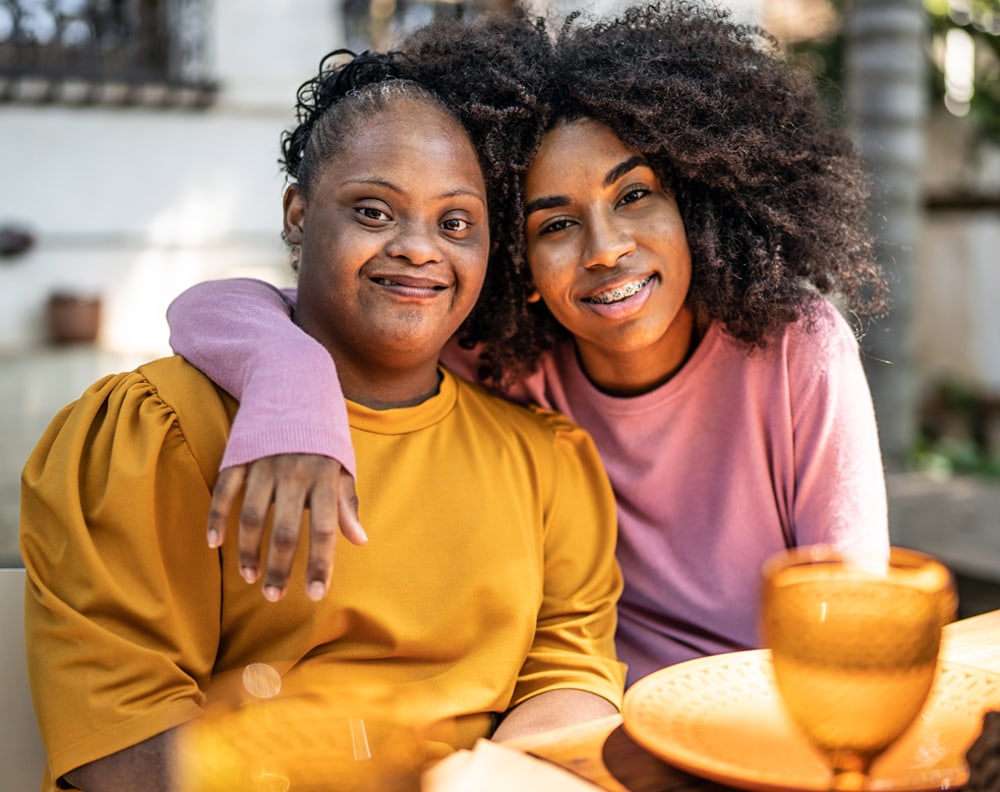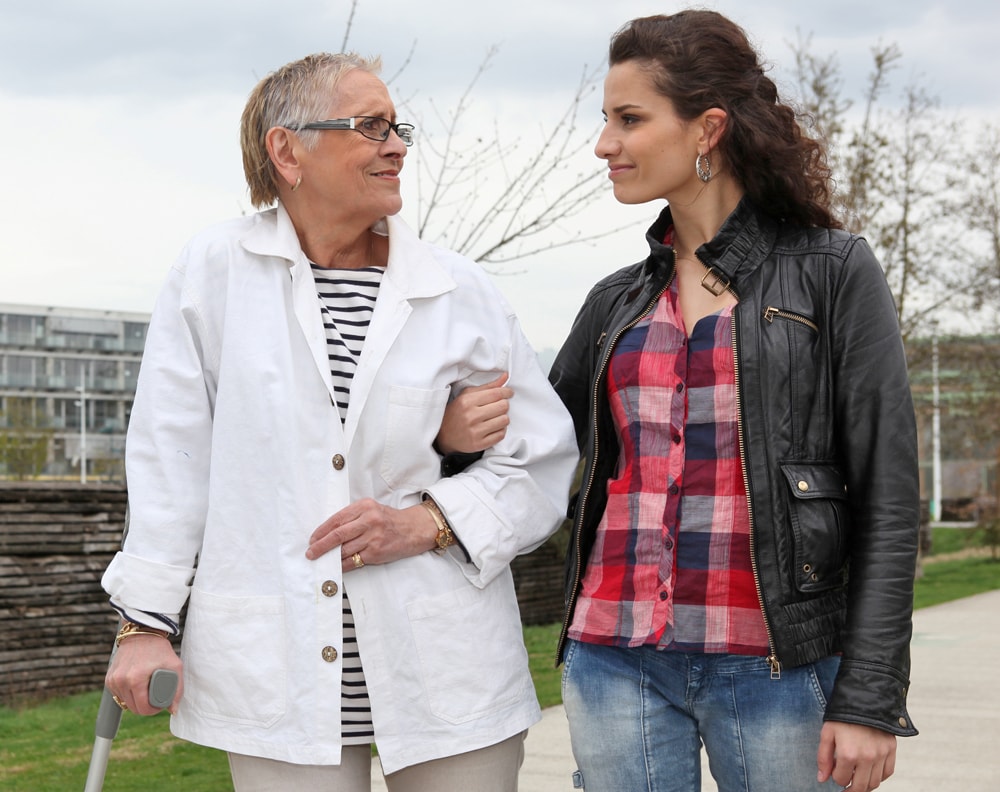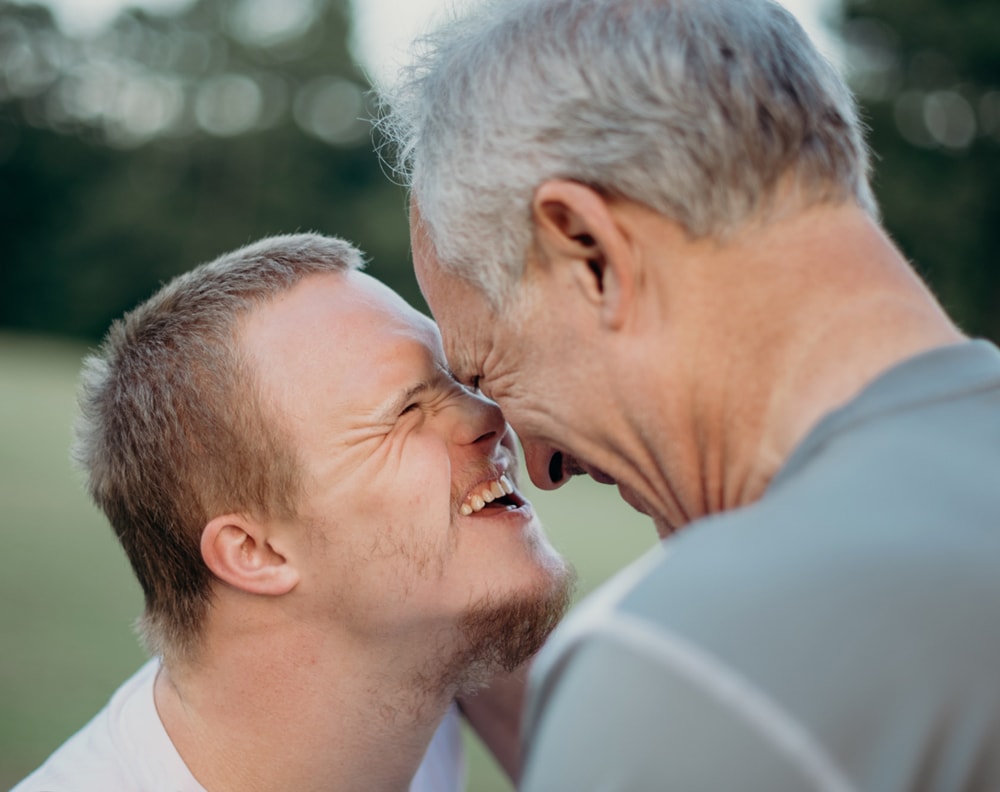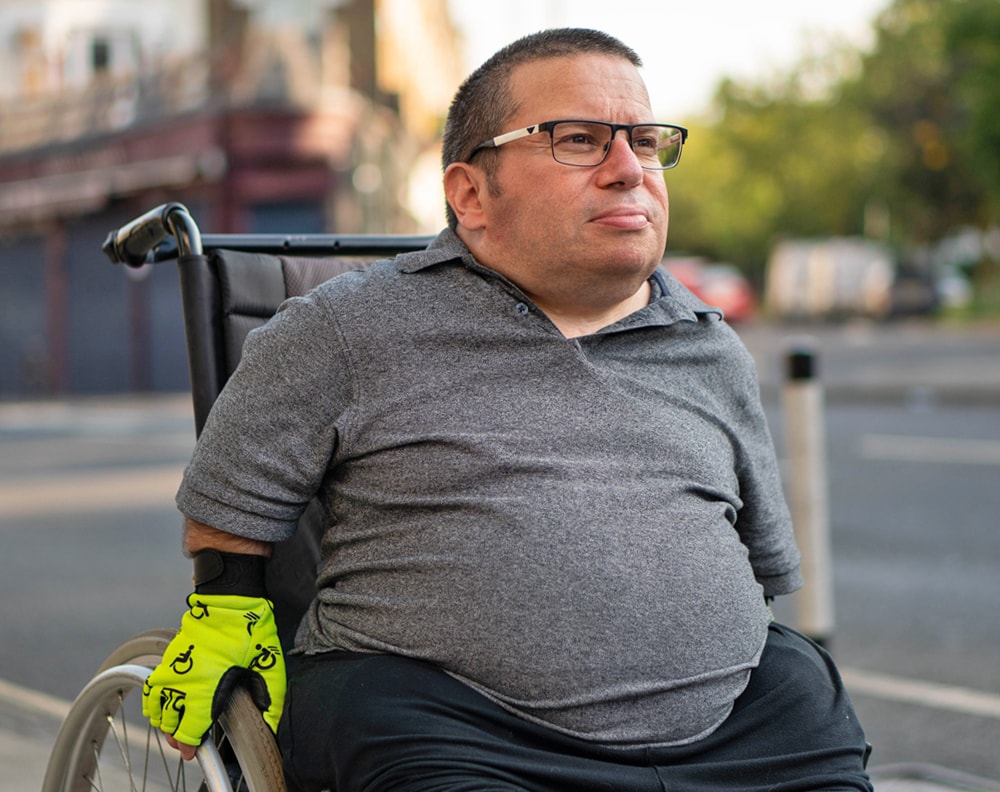FAQ
Frequently Asked Questions
These are frequently asked questions from beneficiaries, grantors, advocates, family members, attorneys, and potential trust clients.

Congress authorized the use of Pooled Special Needs Trusts in 1993. A PSNT must be administered by a non-profit organization and established for the sole benefit of an individual with a disability, also known as a Beneficiary. The funds from all of the sub-accounts are combined or “pooled” for investment and administrative purposes; however, individual contributions, income, and distributions are tracked separately and maintained in each Beneficiary’s sub-account. A major advantage of PSNTs is that they will preserve the Beneficiary’s assets, while still maintaining eligibility for government benefits, including SSI and Medicaid. Disbursements from the trust are restricted and can only be used to pay for supplemental care not provided by government programs. The trust can be established with the Beneficiary's own funds or a third party's funds. The Beneficiary of the trust must be disabled according to the Social Security Administration’s definition of disability - 42 USC § 1382c(a)(3). SSI is a needs-based government program for individuals who are blind, elderly or disabled with little or no income. SSDI provides benefits to blind or disabled individuals who may have contributed to Social Security through previous employment. Medicaid is a federal government program administered by each state that provides health coverage to families and children, pregnant women, the elderly, and individuals with disabilities who have little or no income. Medicare is a federal health insurance program available for people age 65 and older. Younger individuals with certain disabilities may also qualify. The Full Life Center offers two pooled special needs trusts. Which trust you choose will depend on how the trust will be funded. The Full Life Center Pooled Special Needs Trust The Full Life Center Discretionary Trust We require all new trust applicants to work with an attorney, as we cannot provide legal advice. FLC will provide the Beneficiary’s sub-account number to the Beneficiary Advocate. This number should be referenced on all communication with FLC. Additionally, the Trustee will email a Client Portal login to the Beneficiary Advocate. This portal can be accessed at any time and will allow review of all sub-account activity.What is a Pooled Special Needs Trust (PSNT)?
Who qualifies as an individual with disabilities?
What is the difference between SSI and SSDI (Supplemental Security Income and Social Security Disability Insurance)?
What is the difference between Medicaid and Medicare?
Which trust is right for me?
This is a first party trust and is funded with a Beneficiary’s (person receiving trust benefits) own funds. The funds can come from a variety of sources. This type of trust is also called a self-settled trust and has a Medicaid Payback stipulation.
This is a third party trust and is funded with money that does not belong to the Beneficiary. The trust sub-account can receive monies from one or more contributors. Any remaining funds after the death of the Beneficiary will be distributed according to the Grantor’s prior designation in the FLC Joinder Agreement.What is the process for establishing a new trust?
1.1. The Beneficiary meets the Social Security Administration’s definition of disabled.
1.2. The trust will be established for the sole benefit of the Beneficiary.
1.3. The trust will be irrevocable and cannot be terminated.

Can the trust be cancelled or revoked?
Both The Full Life Center Pooled Special Needs Trust and The Full Life Discretionary Trust are irrevocable and therefore, cannot be cancelled or revoked. The funds of the trust can be used for allowable disbursements throughout the Beneficiary’s lifetime. When the funds in the trust sub-account are at the minimum balance, the account will be closed.
If the Beneficiary moves out of state, the funds may be transferred to another qualifying pooled special needs trust without adversely affecting the Beneficiary.
Where can I find a copy of the Trust Agreement and Joinder Agreement?
The Trust Agreements establish the relationship between The Full Life Center, Inc. (FLC) and our Trustee. They can be downloaded from our website. Please click on the links below.
The Full Life Center Pooled Special Needs Trust Agreement
The Full Life Center Pooled Special Needs Trust Joinder
The Full Life Center Discretionary Trust Agreement
The Full Life Center Discretionary Trust Joinder
You can also contact your Client Service Coordinator to request a copy of the trust agreement.
The Joinder Agreement is a legal document that allows the Beneficiary to join the trust and establishes his/her own trust sub-account within the pooled trust. FLC will mail a copy of the executed Joinder Agreement to the following individuals:
- Attorney of Record
- Grantor – the person establishing the trust
- Beneficiary Advocate
The Grantor or Beneficiary Advocate may also request a copy of the Joinder Agreement by contacting the Client Service Coordinator.
Who do I contact if I have a question?
Once your Joinder Agreement has been approved, a Client Service Coordinator will meet with you to learn more about the Beneficiary and the vision for the trust. Your Coordinator will also review FLC procedures and answer any questions you may have. We are always here to help, so please contact your Coordinator with any issues or additional questions.
Who is responsible for notifying government agencies of my new trust sub-account?
FLC requires your attorney to notify applicable government agencies of the newly established trust sub-account, and send us a copy of the notice. These terms are outlined in the Attorney Acknowledgement form. We will also include a notification reminder when we send your attorney a copy of the executed Joinder Agreement.

What expenses can be paid with trust sub-account assets?
The funds can be used to enhance the quality of life for the Beneficiary. Some examples of allowable disbursements include: medical and dental services not covered by Medicaid, Internet, professional services, vehicles, home renovations, education, travel, entertainment and hobbies. For more information, please review the Guidelines for Disbursements.
Important to Note:
All trust sub-account distributions must be for the sole benefit of the Beneficiary.
If the Beneficiary is on SSI or Medicaid, distributions for food, shelter and medical expenses covered by Medicaid may cause a reduction or loss of benefits.
How do I make a distribution request?
If you would like to request a distribution from your trust sub-account, the Beneficiary Advocate should complete the Disbursement Request Form and submit it, along with supporting documentation, to FLC via:
Email:
Disbursements@TheFullLifeCenter.org
Mail:
349 East High Avenue, New Philadelphia, OH 44663
ATTN: Your Client Service Coordinator
Fax:
330.602.2822
ATTN: Your Client Service Coordinator
Supporting documentation should include: copies of a receipt, invoice, purchase agreement, estimate/quote, or proof of payment (See Distribution Request Form for more information).
How long does the distribution request process take?
Routine & Recurring Requests - These are requests for typical and recurring expenditures. These requests are carefully reviewed and must be approved by the Client Service Coordinator and a Supervisor. Please allow 3 – 5 business days for approval.
NOTE: The request may take longer if supporting documentation is not submitted with the request or additional information is required.
Nonroutine Requests – These are requests for nonroutine and nonrecurring items. To ensure we are doing our due diligence, these requests will require additional time for review.
Upon approval, a check will be processed by the Trustee and mailed within 3 business days.
How do I know if my requested was approved or denied?
If your request is approved, payment will be processed within 3 business days. If your request is denied, the Beneficiary Advocate will receive written notification indicating the reason for denial. If you don’t agree with the decision, an appeal can be submitted to your Client Service Coordinator using the Appeal for Denied Disbursement Request form. The appeal will be forwarded to and reviewed by the Disbursement Committee. All decisions by the Committee will be final and communicated to the Beneficiary Advocate.
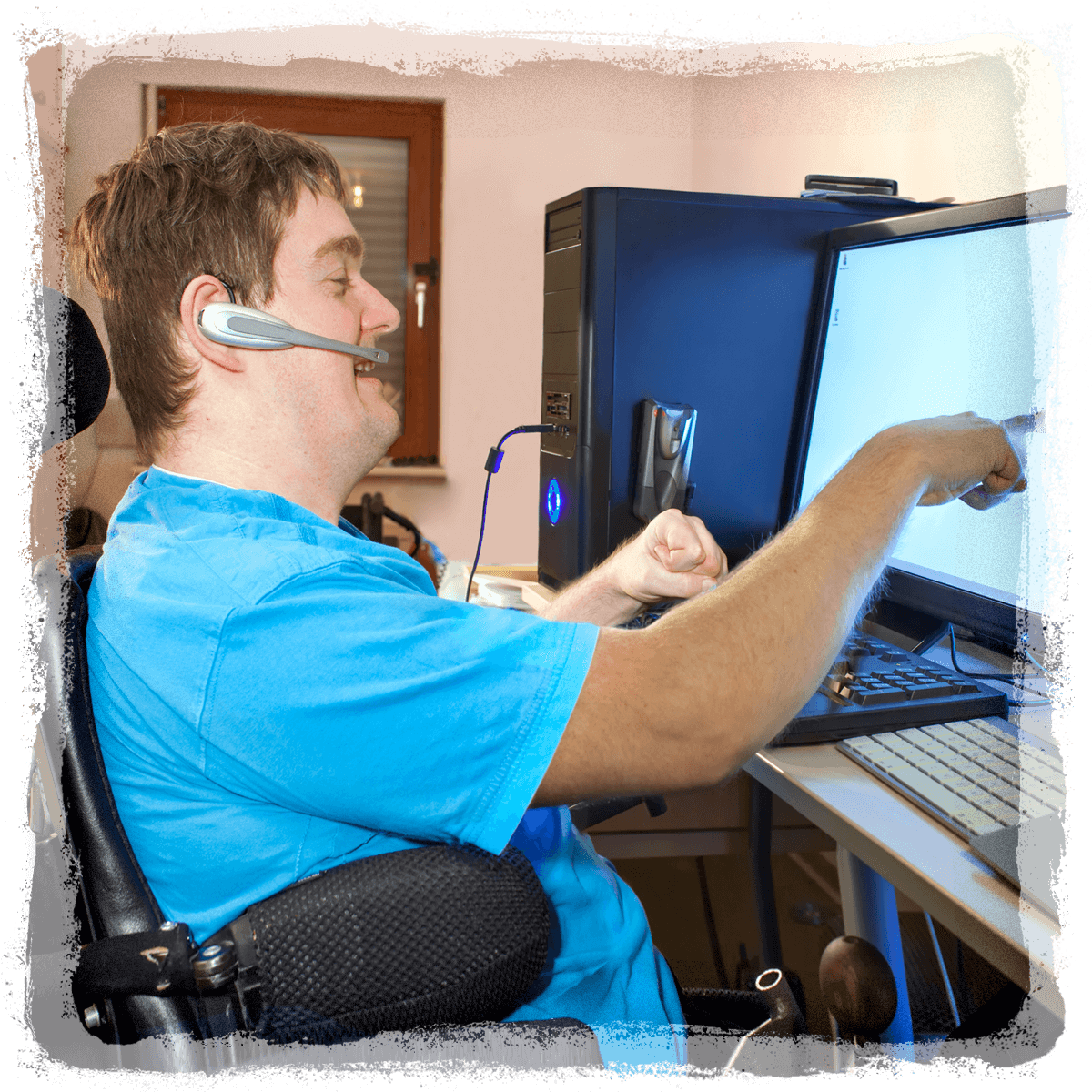
When is the account funded?
The Full Life Center Pooled Special Needs Trust (1st Party Trust)
Typically, the sub-account is funded immediately. However, there are occasions when funds are expected within 90 days. In these circumstances, we will require documentation of future receipt of assets.
The Full Life Center Discretionary Trust (3rd Party)
Funding can be immediate or deferred; however, if funding is deferred, we will require a copy of the document authorizing future transfer of assets into the Beneficiary’s trust sub-account.
Do you hold real property as a trust asset?
Neither trust will hold real property as an asset.
We only accept cash deposits.
Is there a minimum or maximum amount for deposits?
There is no minimum or maximum for deposits; however, funded sub-accounts with a balance less than $750 will be closed if no additional funding is expected.
How can funds be deposited into a first party trust sub-account?
Please complete the Contribution Form and make check payable to:
FLC Pooled Special Needs Trust F/B/O (Name of Beneficiary)
You can mail a deposit check to The Full Life Center, Inc. or drop off your check with our Administrative Assistant during normal business hours.
Checks should be sent to:
The Full Life Center, Inc.
ATTN: (Your Client Service Coordinator)
349 East High Avenue
New Philadelphia, OH 44663
How do family members, friends and other contributors make a contribution to the Beneficiary’s 3rd Party trust sub-account?
Transfers during the Contributor’s lifetime
Complete a Contribution Form and submit to FLC along with a check payable to:
FLC Discretionary Trust F/B/O (Name of Beneficiary)
You can mail a deposit check to The Full Life Center, Inc. or drop off your check with our Administrative Assistant during normal business hours.
Checks should be sent to:
The Full Life Center, Inc.
ATTN: (Your Client Service Coordinator)
349 East High Avenue
New Philadelphia, OH 44663
We have created a letter that can be used to notify family members and friends that a trust sub-account has been set up for the Beneficiary. Please review our Notification Letter.
Transfers by Last Will & Testament or Trust
Specific Bequest:
“If, ____________________, (Name of Beneficiary) survives me, I give and bequeath the sum of $____________________ to The Full Life Center Discretionary Trust for the benefit of (Name of Beneficiary).” Changes in purple.
Residual Bequest:
“If I am survived by, ____________________,(Name of Beneficiary) I give, and bequeath ___ % of my Residuary Estate to The Full Life Center Discretionary Trust for the benefit of (Name of Beneficiary).”
Life Insurance Policies or Qualified Retirement Accounts (IRA, Pension, 401k, etc)
“The Full Life Center Discretionary Trust for the benefit of (Name of Beneficiary).”

How do I establish a pooled special needs trust for my client?
PLEASE NOTE: We require all new trust applicants to work with an attorney, as we cannot provide legal advice.
- Meet with your client and ensure all of the requirements for establishing a pooled special needs trust are met:
1.1. The Beneficiary meets the Social Security Administration’s definition of disabled.
1.2. The trust will be established for the sole benefit of the Beneficiary.
1.3. The trust will be irrevocable and cannot be terminated. - Decide if you will be establishing a First or Third Party trust.
- Review the Trust Agreement with your client.
- Complete all required documentation, submit copies of applicable documents and include a check for enrollment fees. See Getting Started for more information.
- Fund a Beneficiary’s sub-account that is part of the The Full Life Center Pooled Special Needs Trust (1st Party):
Typically, the sub-account is funded immediately. However, there are occasions when funds are expected within 90 days. In these circumstances, we will require documentation of future receipt of assets.
If funding immediately, please complete the Contribution Form and make checks payable to:
FLC Pooled Special Needs Trust F/B/O (Name of Beneficiary) - Fund a Beneficiary’s sub-account that is part of the The Full Life Center Discretionary Trust (3rd Party): Funding can be immediate or deferred; however, if funding is deferred, we will require a copy of the document authorizing future transfer of assets into the Beneficiary’s trust sub-account.
If funding immediately, please complete the Contribution Form and make checks payable to:
FLC Discretionary Trust F/B/O (Name of Beneficiary) - Receive a copy of the executed Joinder Agreement approved and signed by FLC and the Trustee.
- Notify the public agencies providing benefits to the Beneficiary when the Beneficiary’s trust sub-account has been funded, and send FLC a copy of the notice. If funding is deferred, advise the Beneficiary Advocate to notify public agencies when the trust is funded.
Who should serve as the Beneficiary Advocate?
The Beneficiary Advocate can be a family member, friend or anyone who is willing to act in the best interest of the Beneficiary. This individual should understand the Beneficiary’s needs and interests and be able to advocate for a better quality of life for the Beneficiary. Please review the Duties and Responsibilities of Beneficiary Advocate form to ensure the advocate is able to perform what will be required.
Am I responsible for notifying government agencies once the trust has been established?
Government agencies require notification of FUNDING 10 calendar days after the month the funds were received. If the Beneficiary is receiving government benefits, we require his/her attorney to notify government agencies if the trust is immediately funded and send us a copy of the notice. If funding is deferred, we require you to advise the Beneficiary Advocate to notify public agencies when the trust is funded. This is outlined in the Attorney Acknowledgement form.
Does it matter that my client is 65 or older?
If you are establishing a trust sub-account with The Full Life Center Discretionary Trust ( 3rd Party), the age of the Beneficiary does not matter. However, if you are establishing a trust sub-account with The Full Life Center Pooled Special Needs Trust (1st Party), a Beneficiary who is age 65 or older may be penalized for funding the Trust if the Beneficiary receives SSI (Supplemental Security Income) or Medicaid. PLEASE NOTE: Medicaid rules differ from state-to-state and are dependent upon the Beneficiary’s state of residency. Ohio residents will not be penalized by Medicaid for transfers to the trust at the age of 65 or older.
How do I name the Beneficiary in Estate Planning?
Transfers by Last Will & Testament or Trust
Specific Bequest:
“If, ____________________, (Name of Beneficiary) survives me, I give and bequeath the sum of $____________________ to The Full Life Center Discretionary Trust for the benefit of (Name of Beneficiary).”
Residual Bequest:
“If I am survived by, ____________________,(Name of Beneficiary) I give, and bequeath ___ % of my Residuary Estate to The Full Life Center Discretionary Trust for the benefit of (Name of Beneficiary).”
Life Insurance Policies or Qualified Retirement Accounts (IRA, Pension, 401k, etc)
“The Full Life Center Discretionary Trust for the benefit of (Name of Beneficiary).”
Will FLC release information to me as the Beneficiary’s attorney?
FLC will send you a copy of the approved and executed Joinder Agreement. If you are not listed as an authorized party in the Joinder Agreement, a Consent for Release of Information form must be signed and submitted to FLC before additional information will be disclosed.

Will I receive tax documentation regarding the Trust sub-account?
The Trustee will provide the following tax documents to the Beneficiary Advocate:
The Full Life Center Pooled Special Needs Trust (1st Party) beneficiaries will receive a Grantor Letter.
The Full Life Center Discretionary Trust (3rd Party) beneficiaries will receive a Schedule K-1.
Do I need to report Trust sub-account information on my tax return?
The answer will depend on the taxpayer's specific situation. Please consult your tax advisor.
Will FLC prepare my tax return?
FLC is unable to assist in preparation of individual income tax returns. The Beneficiary’s Advocate is responsible for filing individual federal and state income tax returns on behalf of the Beneficiary. A professional tax accountant will prepare a tax return for the trust sub-account and the Beneficiary Advocate will receive a corresponding Grantor Letter or K-1. This tax document should be reviewed by your tax advisor.

Can the Trust pay for funeral expenses after the Beneficiary has died?
No. The trust is only permitted to pay for funeral expenses if the funeral arrangements are made and paid for during the Beneficiary’s lifetime. The Grantor or Beneficiary is encouraged to purchase a pre-paid funeral contract prior to funding the trust sub-account.
What actions do I need to take to close the Trust sub-account?
Please notify your Client Service Coordinator immediately at the time of death. FLC is not notified by any other agency. A certified copy of death certificate is requested to be sent to FLC, Attn: Your Client Service Coordinator when it becomes available. The account closing process will not begin until the certified death certificate is received.
Can a Beneficiary Advocate request post-death distributions?
No. Disbursements are only permitted for trust-related administrative fees. No other disbursements are permitted after the Beneficiary has died. Remaining funds will be distributed pursuant to the Grantor’s designations in the Joinder Agreement.
How long is the wait to initiate Medicaid Payback?
Upon receipt of the Medicaid claim, FLC will ensure all allowable expenses have been paid and then submit reimbursement payment to Medicaid. Any remaining funds will be distributed thereafter.
When can we make the final distribution?
The remaining funds in the trust sub-account will be distributed after allowable expenses have been paid.
Who will receive the remaining funds?
Any remaining funds, after the death of the Beneficiary, will be distributed according to the Grantor’s prior designation in the FLC Joinder Agreement.
If I choose to leave the remaining funds to FLC, how will FLC use the funds?
FLC will use the funds to support its charitable mission to enhance the quality of life for individuals in need.
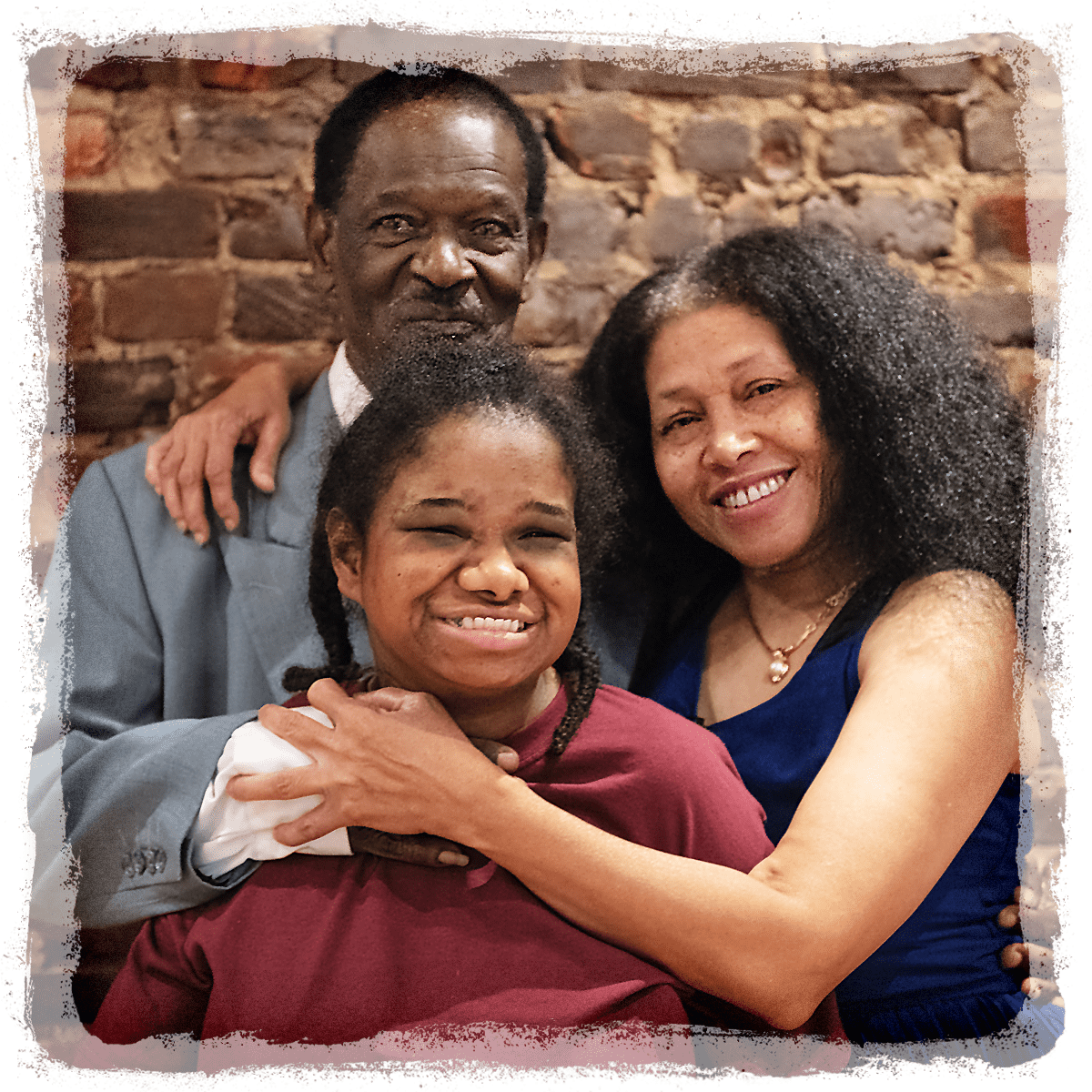
Serving Tuscarawas County, Ohio residents
What are the steps involved in the Guardian Process?
- A referral for guardianship is made by a nursing home or an individual to the FLC Volunteer Program Coordinator.
- A Statement of Expert Evaluation must be signed by a physician or licensed clinical psychologist and submitted to FLC. This document certifies the person has a disability and because of that disability, he/she needs a guardian.
- The Coordinator will assign a qualified Volunteer or family member to act as guardian. The Volunteer will have an opportunity to meet with the ward and decide if he/she will accept the assignment of guardian.
- The appropriate family members will be notified and asked to sign a Waiver of Notice & Consent.
- The documents will be filed with the Tuscarawas County Probate Court and a hearing date will be set with official notices going to the ward about the guardianship proceedings.
- At the hearing, the Judge will listen to evidence presented and make a ruling concerning the guardianship.
- The guardianship proceedings can take approximately four weeks to complete and become effective. However, an emergency guardianship may be established within a few days.
- Once the guardianship is effective, The Tuscarawas County Probate Court requires all Volunteer Guardians to file a Guardian’s Report annually. Volunteer Guardians are advised to keep records of all interactions with the ward.
What is a guardian and what responsibilities will I have if I become a Volunteer Guardian?
A guardianship may be required when a person is unable to care for himself/herself or make sound decisions. After The Court deems the guardianship necessary, the individual in need will become a ward and a guardian will be appointed. The guardian of the person will legally assume the care of the ward, including medical and housing, or both. The guardian of the estate will be accountable for the ward’s financial assets. The guardian can be a family member or someone willing to assume the legal responsibilities.
Guardian responsibilities include:
- Obtain FBI and BCI background check.
- Complete the 6-hour Supreme Court of Ohio training prior to appointment as guardian, and an additional 3-hour training each subsequent year of service. All trainings are free, and most can be found online.
- Visit your ward at least monthly and establish a nurturing and trusting relationship with the person.
- Keep a log of your visits and document any changes in the ward’s condition.
- Ask questions and make inquiries to nursing home staff with any concerns you may have. After careful consideration, formulate a decision regarding informed consent for medical treatment and other services.
- Report any address or phone number changes, using the Guardian Change form, to the Tuscarawas County Probate Court and the Volunteer Program Coordinator.
- File a Guardian Report annually and an Expert Evaluation bi-annually with the Tuscarawas County Probate Court.
Will I receive any type of reimbursement for becoming a Volunteer Guardian?
This is a volunteer position and there is no reimbursement.
Does a guardianship ever end or can it be revoked?
Guardianship is normally a long-term relationship. The Court may modify, revoke or terminate the guardianship if the ward’s ability to make and communicate decisions changes and can be demonstrated to the Court. The guardian may also ask the Court to assign a successor guardian if, for personal reasons, the guardian feels unable to continue with the ward.
What kind of support is in place to help a Volunteer Guardian when a problem arises?
Should an issue, problem, concern, or question arise at any time during the guardianship, you may contact the Volunteer Program Coordinator who will provide information or put you in contact with a resource person or agency that can properly handle your question.




